
Project management is a critical discipline in the modern business world, ensuring that complex projects are completed on time, within budget, and to the required quality standards. Over the years, several project managers have stood out for their exceptional skills, innovative approaches, and significant contributions to their fields.
Although some debate will exist about the composition of any top 10 list, I present here ten of the most famous project managers whose work has left a lasting impact.
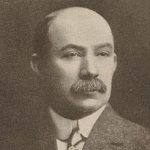 1. Henry Gantt (1861-1919)
1. Henry Gantt (1861-1919)
Henry Gantt, an American mechanical engineer and management consultant, is best known for developing the Gantt chart. This visual project management tool is still widely used today for planning and tracking projects. Gantt’s work in project management began during World War I, where he applied his techniques to shipbuilding projects. Gantt emphasized the importance of clear communication and team collaboration, ensuring that everyone understood their roles and responsibilities. His contributions to project management extended beyond tools; he advocated for worker welfare and productivity, promoting a harmonious relationship between management and labor.
His legacy lives on in the form of Gantt charts, which have become a fundamental tool in project management.
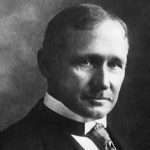 2. Frederick Winslow Taylor (1856-1915)
2. Frederick Winslow Taylor (1856-1915)
Frederick Winslow Taylor, often referred to as the father of scientific management, introduced systematic approaches to improve efficiency in industrial operations. Taylor’s principles of scientific management, which emphasize the importance of planning and controlling work processes, laid the groundwork for modern project management. His work influenced many industries and continues to be relevant in project management practices today.
Taylor’s principles of scientific management, which emphasize the importance of planning and controlling work processes, involved the systematic approach to improving efficiency through time and motion studies, which identified the most effective ways to perform tasks. Taylor emphasized the importance of standardization and specialization, enabling organizations to optimize their workflows. His principles of scientific management advocated for clear roles, performance measurement, and data-driven decision-making, laying the groundwork for modern project management practices.
By fostering a culture of continuous improvement, Taylor’s methodologies influenced many industries and continues to be relevant in project management practices today.
3. Walt Disney (1901-1966)
 Walt Disney was not just a visionary entrepreneur but also a remarkable project manager. He oversaw the creation of Disneyland, one of the most ambitious entertainment projects of his time. Disney was deeply involved in every step of the planning, from design to execution, ensuring that his vision came to life with meticulous attention to detail. He managed multiple departments, including engineering, architecture, and entertainment, balancing technical challenges with creative ideas. His ability to inspire and lead his team was key to the success of large-scale projects.
Walt Disney was not just a visionary entrepreneur but also a remarkable project manager. He oversaw the creation of Disneyland, one of the most ambitious entertainment projects of his time. Disney was deeply involved in every step of the planning, from design to execution, ensuring that his vision came to life with meticulous attention to detail. He managed multiple departments, including engineering, architecture, and entertainment, balancing technical challenges with creative ideas. His ability to inspire and lead his team was key to the success of large-scale projects.
Disney’s ability to manage complex projects, coordinate large teams, and deliver innovative experiences revolutionized the entertainment industry. His attention to detail, strategic planning, and creativity set a high standard for project management in the entertainment sector.
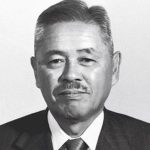 4. Taiichi Ohno (1912-1990)
4. Taiichi Ohno (1912-1990)
Taiichi Ohno revolutionized the manufacturing industry and brought Toyota from a small player to dominance in the automobile industry in the 1990’s with his visionary approach to efficiency. As a key architect of the Toyota Production System, Ohno introduced principles that emphasized waste reduction and continuous improvement. His relentless pursuit of perfection led to the development of the famous “Just-in-Time” methodology, which streamlined production processes and minimized inventory costs. His emphasis on the “Five Whys” technique encouraged root cause analysis, allowing teams to tackle challenges at their source.
Through his innovative thinking and practical strategies, Ohno not only transformed Toyota into a global powerhouse but also set a standard for project management that transcended industries. Toady, his legacy endures via inspiring countless projects managers to embrace lean principles and prioritize efficiency, quality, and employee engagement in their projects.
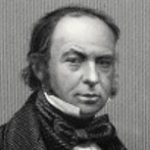 5. Isambard Kingdom Brunel (1806-1859)
5. Isambard Kingdom Brunel (1806-1859)
The most innovative of all the great engineers of the railway age, Isambard Kingdom Brunel captured the public imagination of his day, and has continued being a source of inspiration ever since. In everything he did, from his rail projects to his bridges to his ships, he challenged conventional thinking. This resulted in triumphant successes as well as spectacular failures.
Brunel was in charge of the design and construction of iconic structures such as the Great Western Railway, the Thames Tunnel, and the Great Eastern ship. Brunel’s exceptional ability to coordinate large teams and manage resources effectively ensured that projects were completed on time and within budget. His emphasis on practicality and design excellence not only pushed the boundaries of engineering but also transformed transportation, leaving a lasting legacy that continues to inspire project managers today.
6. Steve Jobs (1955-2011)
 Steve Jobs, co-founder of Apple Inc., was a visionary project manager who revolutionized multiple industries, including computing, music, and telecommunications. Jobs’ leadership in the development of iconic products such as the iPhone, iPad, and MacBook showcased his extraordinary project management skills. His emphasis on innovation, user experience, and seamless integration of hardware and software set new standards in project management in the tech industry.
Steve Jobs, co-founder of Apple Inc., was a visionary project manager who revolutionized multiple industries, including computing, music, and telecommunications. Jobs’ leadership in the development of iconic products such as the iPhone, iPad, and MacBook showcased his extraordinary project management skills. His emphasis on innovation, user experience, and seamless integration of hardware and software set new standards in project management in the tech industry.
Jobs excelled at setting clear goals and fostering a culture of innovation, pushing his teams to exceed expectations. His insistence on perfection and attention to detail resulted in products that revolutionized consumer electronics. Moreover, Jobs was a skilled communicator, inspiring his teams to collaborate effectively. His legacy as a project manager is evident in Apple’s ongoing success, highlighting the profound impact of visionary leadership in project management.
7. Elon Musk (1971-)
 Elon Musk, the CEO of SpaceX and Tesla, is a modern-day icon known for his ambitious and groundbreaking projects. Musk’s leadership in developing electric vehicles, reusable rockets, and solar energy solutions demonstrates his exceptional project management abilities. Although Musk has been known to miss a few deadlines, he routinely sets audacious goals that involve stepping out beyond existing human technical boundaries. His hands-on approach and willingness to tackle complex challenges have resulted in significant advancements in renewable energy, space exploration, and human-machine interaction. His approach combines visionary thinking, rigorous planning, and relentless execution.
Elon Musk, the CEO of SpaceX and Tesla, is a modern-day icon known for his ambitious and groundbreaking projects. Musk’s leadership in developing electric vehicles, reusable rockets, and solar energy solutions demonstrates his exceptional project management abilities. Although Musk has been known to miss a few deadlines, he routinely sets audacious goals that involve stepping out beyond existing human technical boundaries. His hands-on approach and willingness to tackle complex challenges have resulted in significant advancements in renewable energy, space exploration, and human-machine interaction. His approach combines visionary thinking, rigorous planning, and relentless execution.
By fostering a culture of rapid prototyping and iteration, Musk inspires his teams to embrace risk and creativity.
8. Thomas Edison (1847-1931)
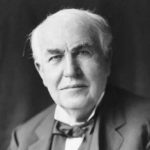 Thomas Edison was a pioneering project manager whose innovative spirit and strategic thinking transformed the landscape of technology and industry. Renowned for his prolific inventions, including the electric light bulb and the phonograph, Edison managed large teams at his Menlo Park laboratory, fostering collaboration and creativity. He employed a systematic approach to experimentation, emphasizing trial and error to achieve breakthrough results. Edison’s ability to balance vision with practical execution enabled him to bring multiple projects to fruition simultaneously.
Thomas Edison was a pioneering project manager whose innovative spirit and strategic thinking transformed the landscape of technology and industry. Renowned for his prolific inventions, including the electric light bulb and the phonograph, Edison managed large teams at his Menlo Park laboratory, fostering collaboration and creativity. He employed a systematic approach to experimentation, emphasizing trial and error to achieve breakthrough results. Edison’s ability to balance vision with practical execution enabled him to bring multiple projects to fruition simultaneously.
His legacy as a project manager is evident in his emphasis on persistence, teamwork, and the relentless pursuit of improvement, inspiring future generations of innovators.
9. Frank Gehry (1929-)
Frank Gehry, a renowned architect, is also celebrated as one of the most influential project managers in the world of design and construction. Known for his bold, unconventional structures, Gehry manages projects that push the boundaries of architecture. His ability to coordinate and lead teams through complex and innovative builds is a testament to his project management expertise. Gehry’s work, including iconic projects like the Guggenheim Museum in Bilbao and the Walt Disney Concert Hall in Los Angeles, is characterized by cutting-edge design techniques, meticulous attention to detail, and the seamless integration of engineering and artistry.
Gehry is famous for embracing advanced technologies, particularly the use of digital modeling software, to bring his abstract concepts to life. Managing these large-scale projects requires not only creativity but also exceptional leadership, coordination with engineers, and precise oversight of construction processes. Gehry’s ability to blend form and function, while navigating the practical constraints of timelines, budgets, and client expectations, has solidified his reputation as a project manager who consistently delivers groundbreaking results. His collaborative approach fosters innovation, making his projects a true blend of art and architecture. Gehry’s legacy is defined by his unique vision and the masterful execution of complex architectural projects
10. Henry Ford (1863-1947)
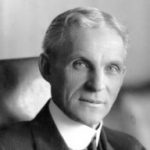 Henry Ford was a groundbreaking project manager who revolutionized manufacturing with his vision of mass production. By introducing the assembly line to automobile production, he dramatically increased efficiency and reduced costs, making cars affordable for the average American. Standardization was Ford’s hallmark. He also fostered a culture of teamwork and empowered workers through fair wages, which improved productivity and morale. His relentless pursuit of efficiency and quality transformed not only the automotive industry but also set the foundation for modern manufacturing practices, solidifying his legacy as one of the world’s great project managers.
Henry Ford was a groundbreaking project manager who revolutionized manufacturing with his vision of mass production. By introducing the assembly line to automobile production, he dramatically increased efficiency and reduced costs, making cars affordable for the average American. Standardization was Ford’s hallmark. He also fostered a culture of teamwork and empowered workers through fair wages, which improved productivity and morale. His relentless pursuit of efficiency and quality transformed not only the automotive industry but also set the foundation for modern manufacturing practices, solidifying his legacy as one of the world’s great project managers.
Conclusion
The contributions of these ten famous project managers span various industries and time periods, showcasing the universal importance of effective project management. From pioneering industrial efficiency to leading cutting-edge technological innovations, these individuals have set standards and left legacies that continue to influence project management practices today.
Their stories illustrate the critical role of project management in achieving success and driving progress across diverse fields.





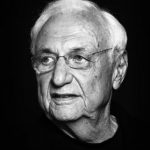






Leave a Reply